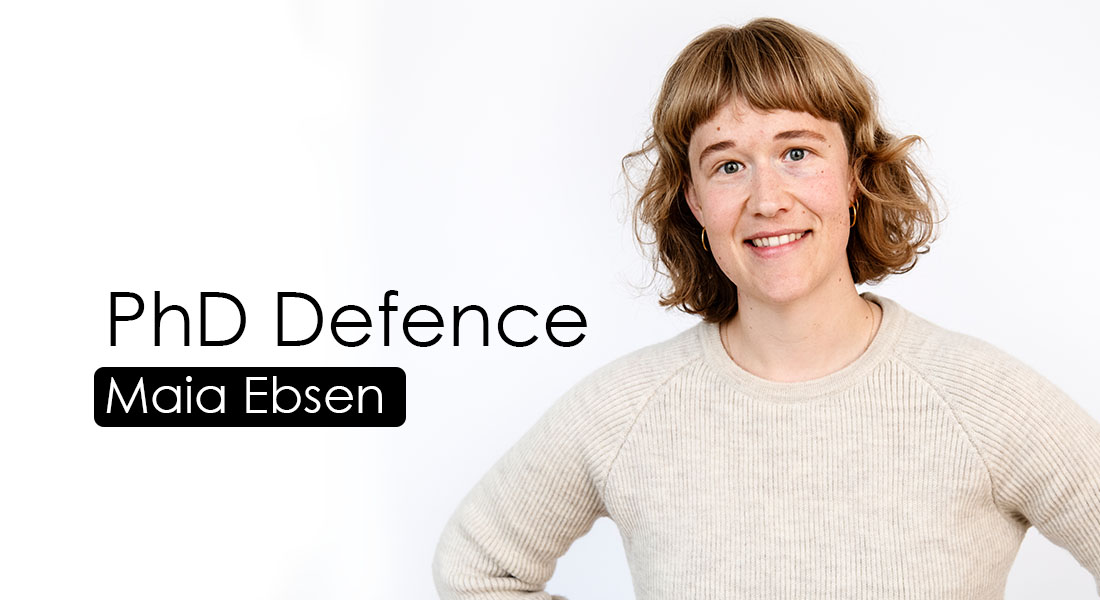
Maia Ebsen defends her PhD thesis at the Department of Anthropology
Candidate
Maia Ebsen, Department of Anthropology, University of Copenhagen.
The PhD study was funded by the Laurits Andersen Foundation.
Title
Politics of Tinkering
Craftwork and the resurgence of cooperativism in contemporary Denmark
Committee
- Professor Bjarke Oxlund
University of Copenhagen (chair) - Professor Michael Herzfeld
Harvard University - Professor Heather Paxson
MIT - Massachusetts Institute of Technology
Host
Head of the PhD Programme in Anthropology, Professor Tine Gammeltoft
Time and Place
25 January, at 3:00 PM
University of Copenhagen, Faculty of Social Sciences,
Øster Farimagsgade 5, 1353 Copenhagen K
Room no. 35.0.12
The defence is scheduled to last a maximum of 3 hours. After the defence, the department will hos an informal reception in room 33.1.19.
A copy of the dissertation is available for reading at the Department of Anthropology, by contacting Vicki Antosz (va@samf.ku.dk), office 16.1.34. The dissertation will be available via academic books as an e-publication after the defence.
It is possible to participate online for the event.
ZOOM link:
https://ucph-ku.zoom.us/j/64673912466?pwd=elh6N2tzRFRCOVF5eG5lVGtnUWU5Zz09
Meeting ID: 646 7391 2466
Passcode: 778146
Summary
Cooperativism, a labor organizational model with origins in the 19th century, has gained renewed traction across the globe in response to the austerity climates that arose in the aftermaths of socio-economic and political crises in the 2000s; primarily the 2008 financial crisis. In Denmark, various actors ranging from cooperative practitioners to professional cooperative advocates are likewise engaged in reviving the model in an attempt to allow more inclusive, just and localized business practices to thrive. This dissertation Politics of Tinkering – Craftwork and the resurgence of cooperativism in contemporary Denmark explores a resurgence of cooperativism in Denmark sparked by this work by examining how the founding and subsequent generations of builders in a Copenhagen-based building cooperative seek to invigorate this particular organizational form.
The dissertation is based on 11 months of fieldwork in a building cooperative I call KLAR. Founded in 2001 by eight builders, the cooperative today employs approximately 70 builders specialized in different trades. On a daily basis, the group works on a variety of construction projects ranging from the installation of ready-made kitchens to the total refurbishment of buildings, often with a focus on developing new ways of employing refurbished or environmentally-friendly construction materials.
Over the course of seven chapters, the dissertation explores how this group of builders pursue social change through their engagement with cooperativism; embodied aspects of craftwork; apprenticeship training; and in their choice of construction materials and projects. Through an analysis of the builders’ aspirations, daily work at construction sites, discussions at assemblies, and efforts to rethink building practices and projects, it traces a political practice emerging within the cooperative as well as the conceptions of agency and subjectivity that undergird it. In doing so, it brings questions of diversity, creativity and freedom to bear on anthropological studies of cooperativism and political action more broadly.
The dissertation demonstrates that the builders’ daily lives and political practices are characterized not by extraordinary events or confrontations, but rather by a meticulous attention to craftwork. It shows that as they learn to carefully repair, refine, recalibrate, re-model or simply renew their craft skills, the builders also rework themselves and larger social structures in Denmark and beyond, such as building conventions and economic systems. The dissertation argues that this kind of work indexes a political practice employed by the builders in their efforts to initiate transformational social change. It conceptualizes this particular practice as a politics of tinkering that is guided by an aspiration to continuously experiment with various projects and interventions, rather than imagine radically alternative ways of working and living. In doing so, the dissertation extends our knowledge of what contemporary political practice might be.
